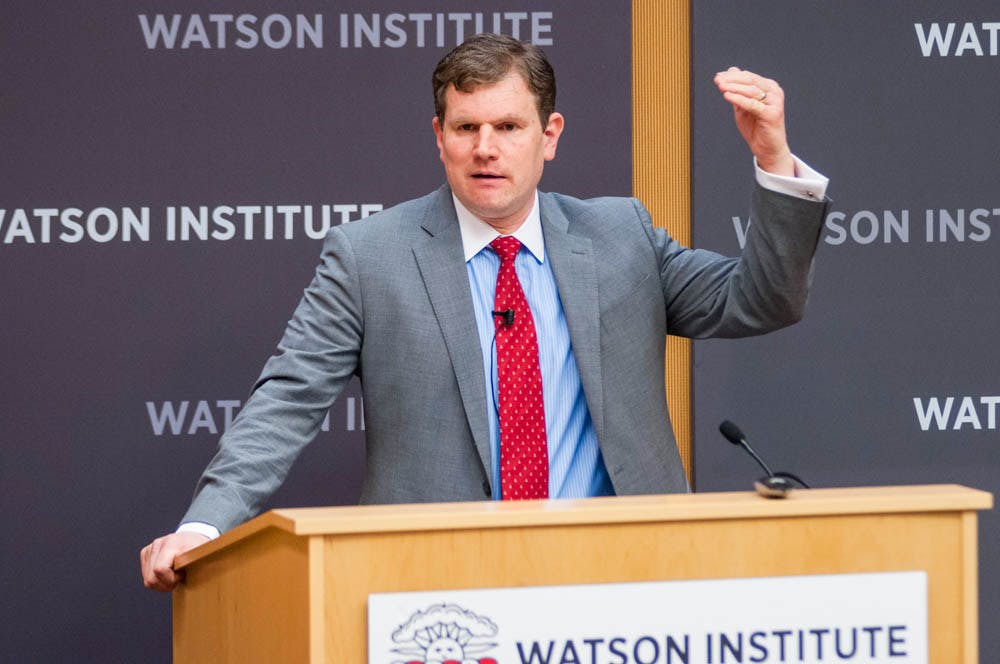“What is the most important political problem facing the world today?” asked Dan Maffei ’90, former representative from New York’s 24th congressional district, as he opened his talk at the Watson Institute for International and Public Affairs Wednesday afternoon. Maffei proceeded to poll the audience, suggesting economic policy, terrorism and climate change before proposing that the biggest problem in the United States government might be dissatisfaction with the government itself — one audience member suggested, more specifically, dissatisfaction with Donald Trump.
Maffei rebuffed this point: “Trump is the effect, not the cause” of pervasive frustration with the U.S. political system, he said. High rates of dissatisfaction with the government predated his presidency by years, according to Gallup polls that Maffei cited. Trump “rode the wave” of anti-government sentiment into the White House, he added.
Maffei then encouraged audience members to re-evaluate the stale political narratives Americans have come to accept as facts. For example, though political scientists love to cite the contradiction that everyone hates Congress but loves their representative, this has actually become false in recent years, according to Maffei. Now, most Americans think their representatives are corrupt as well, he said.
The culture of distrust in politics partly comes from poor communication by the media. In its quest to cover two sides of a story, the media often gives voice to polarized positions while failing to get sources from the middle, which perpetuates political polarization, he said.
Politicians’ own inability to communicate their work clearly and understandably to the public is part of the issue as well, he said. Maffei explained that the mission of a congressman is not only to represent his constituents through good policymaking but also to communicate to his district the significance of these new policies. Maffei cited the American Clean Energy and Security Act of 2009 as an example of constituents acting against their own interests. The bulk of his district was opposed to the bill for fear it would raise gas taxes despite the fact that the bill would leave gas taxes unaffected and actually objectively benefit his district, Maffei said.
He also claimed the Democractic party often finds itself in this predicament. “We say we want the best for the people, even if the people don’t understand it,” he said, adding that this is why the party has garnered a reputation for elitism.
One student asked him about elitism after the talk: “Have you noticed that congresspeople who pander to waves of anti-intellectualism … (do so) just for show?” Maffei answered that he thought most policymakers do not really believe the anti-intellectual messages they put out. He also encouraged audience members to consider anti-intellectualism as more than a purely Republican phenomenon — Republicans may pander to climate change skeptics, but Democrats pander to voters who oppose genetically modified foods, despite the lack of scientific evidence that GMOs are harmful to one’s health, he said.
The biggest issue the Democratic party faces right now is its inability to hold onto power and clearly communicate its policy goals, he said.
Meanwhile, the Republican party is much better at holding onto political power, he said. He then questioned Republican policies surrounding free trade, Russia and budget deficits, which have flip-flopped throughout the years.
“This is not your grandfather’s Republican party. It’s not even Eisenhower’s. I’m not sure it’s even Reagan’s.”
In response to perceived political dysfunction, Maffei said the political parties need to become better organized to allow for more internal variation in ideology without causing overall disunity.





